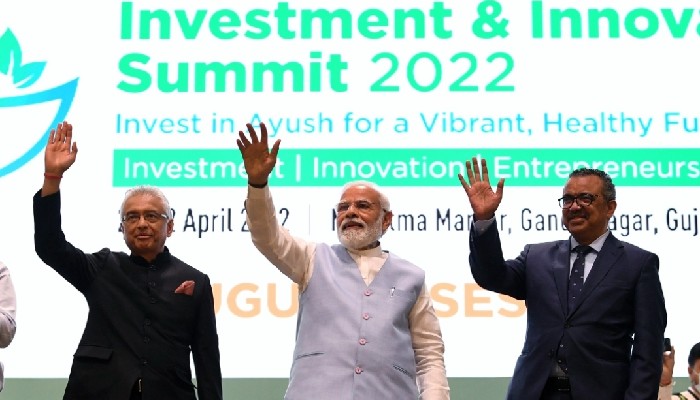The Defence Minister also emphasized the importance of the space sector
Defence Minister Rajnath Singh on Monday called for long term public-private partnership to make India a knowledge economy.
"Today, the private sector is exposed to a large number of opportunities in the space sector. Whether it is defence or space, we are fully welcoming the private sector,” he said.
Inaugurating the Kalpana Chawla Centre for Research in Space Science & Technology (KCCRSST) at Chandigarh University, he reiterated the Government’s commitment to strengthening the private sector for the holistic development of the nation.
Listing out some of the measures aimed at tapping the potential of the private sector, Singh said the Government is sharing technology & expertise and opening its various facilities for the industry. He stated that transfer of matured technologies is under consideration.
According to Singh, the space sector is deeply connected with mapping, imaging and connectivity facilities, speedy transportation, weather forecast, disaster management as well as border security.
It played a crucial role in keeping the world connected during the COVID-19 pandemic, from testing to data-transfer & analyses, he added.
The Defence Minister pointed out that the authorities understood the potential of the sector.
In this context, he recalled the four main pillars of reforms within the sector envisioned by Prime Minister Narendra Modi.
These pillars are: freedom of innovation to the non-public sector; position of the federal government as an enabler; getting ready the youth for the longer term and viewing the area sector as a useful resource for progress.
To boost India's education and research sectors to a global level and turn it into a knowledge economy, the Defense Department has called for an active and long-term public-private cooperation private partnership to take the training & science sectors to a worldwide degree and make India a data financial system.
On the setting up of Indian National Space Promotion and Authorisation Centre (IN-SPACe), he stated, the independent agency will act as a single window for matters related to the space sector.
Singh also called for working towards development of futuristic technologies such as Artificial Intelligence, Internet of Things, Big-Data and Block-chain for the overall development of the Nation.
He stressed that progress in space technology will develop scientific temper in the youth of the country and India will move forward in frontier technologies.
During his address, Defence Minister Singh said the university had taken a giant leap by launching the centre, which is named after the first woman astronaut of India to go into space.
Singh also launched a Scholarship Scheme, worth Rs 10 crore, for the wards of Defence Personnel of the three Services.
He praised the Research Centre's foundation as a significant step toward improving India's space sector, emphasising that it is only through such efforts that India can become a leader in future technology.
He compared the KCCRSST to the late India-born astronaut Kalpana Chawla, anticipating that this research centre would reach new heights of accomplishment, akin to the late India-born astronaut's remarkable achievements, which gave international respect to her place of origin.
"The future of India in the twenty-first century can only be assured if you have a gleam in your eyes to reach the stars and planets. If you look at different planets and constellations, more Indians like Aryabhatta, Vikram Sarabhai, Satish Dhawan, and Kalpana Chawla will emerge from among you all", the Defence Minister said addressing the students in attendance.
Defence Minister Singh lauded the Chandigarh University for setting records of success in research & innovation in the last few years.
The university’s nanosatellite CUSat will be among the 75 student-built satellites to be launched into space on the eve of the 75thIndependence Day in 2022. The Chandigarh University has joined the list of 13 institutes like Indian Institute of Technology (IIT) Kanpur, IIT Bombay and became the first university in North India to design and develop its own satellite.
For the project, 75 students of the University have been working on the Chandigarh University Student Satellite Project under the guidance of eminent Indian scientists, the University informed.
The launch of CUSat will prove to be an important step for the country, as it will collect data related to border intrusion detection, agriculture, weather forecasting, natural disaster forecasting, which will be helpful in research and study of various problems in these areas.
 Contact Us
Contact Us  Subscribe Us
Subscribe Us









 Contact Us
Contact Us
 Subscribe
Subscribe
 News Letter
News Letter

